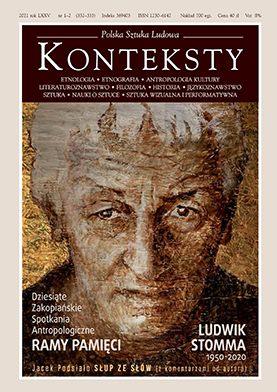
We kindly inform you that, as long as the subject affiliation of our 300.000+ articles is in progress, you might get unsufficient or no results on your third level or second level search. In this case, please broaden your search criteria.

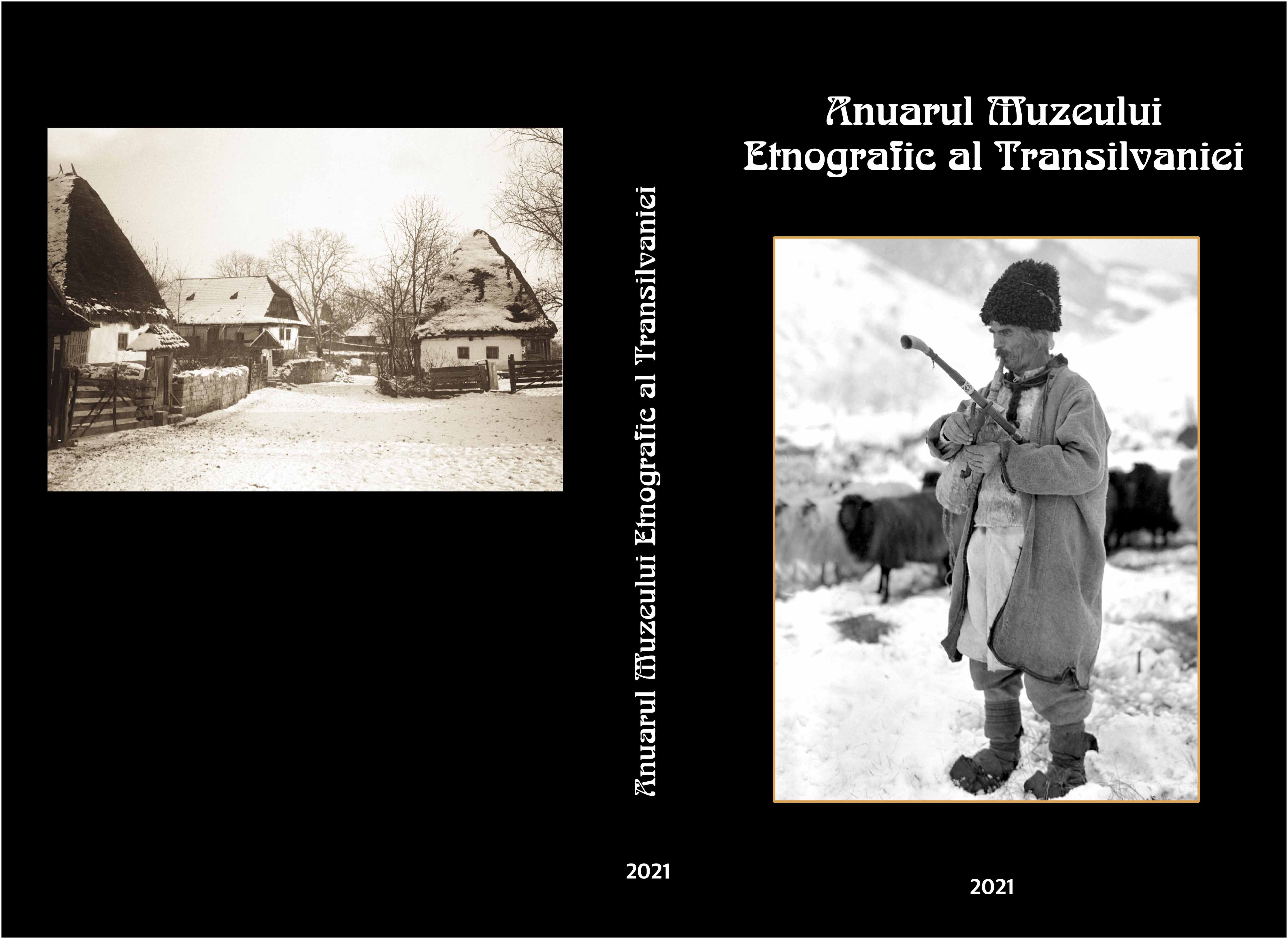
Our study focuses on an important and interesting aspect of legal ethnology- The habit of the earth, that legal code of great complexity, including unwritten rules, meant to order the social, economic, spiritual, family life, etc., as established and they perpetuated in the archaic area of Cosău Valley from Maramureș County. At the beginning we focused, using the opinions of researchers, on the concept of unwritten ancestral legal code, reflecting how the peasant conceives the idea of justice, how it is resolved according to the rules of this ancestral code, then how its rules materialize in all sectors of village life. We also referred to the durability and resistance of the custom of the land over time, the way in which unwritten laws coexisted in feudal society along with written ones. A developed chapter was reserved for unwritten norms related to the complex of relations between the villagers, in which we emphasized the role played by the implications of the kinship system, then the relations between the villagers and the “village lights''. We have assigned a separate chapter for unwritten agrarian laws, many related to property, to the protection of wealth. We paid attention to the ways of associating the owners in order to be able to break through the work of the agricultural lands, which required a lot of increased labor force. We have assigned another chapter for the unwritten pastoral laws, the sheepfold having a complex status, with numerous rigorously observed norms. We referred to the role of the sheepfold chief in the observance of the unwritten norms from the statute of the sheepfold. Another chapter is about the unwritten norms of the complex of family life, with many normative provisions, some related to the protection of children, others to the complex of marriage, others focused on the relations between children and parents, etc. In our study we also included unwritten normative provisions related to the practice of certain trades or related to the obligations of the community to the calls of the village leadership. In this chapter, we paid attention to the normative provisions related to the transactions between the villagers. A developed chapter of our study is intended to judge the abuses committed by the guilty, due to the violation of the unwritten norms, in which we focused on those invested to apply them: the elderly, the lads' group or by people with juridical and administrative roles in the rural community. We also did not omit the information related to the categories of punishments: fees or punishments or the submission to the laughter and mockery of the village, the compensations in kind, etc. The study concludes with brief references related to the legal customs performed in the investigated space: Shouting over the village and ,,Herdetișurile''.
More...
The Vienna Diktat caused important territorial changes, affecting the two Romanian Churches, namely the Greek Catholic Church and the Orthodox Church. Taking into account both political changes and the new borders, both the Greek-Catholic Diocese of Cluj -Gherla and the Orthodox Diocese of Cluj were on the territory of Hungary, and this new situation determined a stronger solidarity between the two romanian bishops of Cluj. Therefore, the purpose of this paper is to present the way in which the relationship between the two bishops was illustrated in the newspaper Tribuna Ardealului. First of all, the interaction between the two bishops will be highlighted, for exemple the official events in which they both participated, and also their collaboration regarding the help of the Romanian cultural activity in the chronological interval considered within this research. Secondly, the relationship between the communities of believers of the two Romanian denominations will be captured, with special emphasis on rural communities. Therefore, in addition to reconstructing the historical events considered, the research will also follow the critical analysis of newspaper articles reporting these events, to see what aspects were emphasized, and what message was intended to be transmitted.
More...

An analysis of the significance of the category of tenderness (introduced into the humanities discourse by Olga Tokarczuk) for the phenomenon of testimony, whose modus is both literature and art. In her opinion tenderness is responsible for the semantic and ontological “condensation” and “expansion” that occur in masterpieces as well as testimonies which can be described as great. In this manner they transgress the opposition of truth and fabrication. By referring to selected examples M. Barbaruk demonstrates that tenderness renders possible an affective connection with the unknown or else the extremely distant (such as the past, a foreign land). By following clues of the media, described by Tokarczyk in The Tender Narrator (in particular the radio set “with the green eye”), she proposed to perceive the expansion of the world by means of tenderness in the art of new media, e.g. in the video-installation Visitation by Bill Viola. The extremely realistic style of a work realised in the high definition technique evokes transformations taking place in the act of christening, which could be a symbol of the link between the existential and technological transformation of human reality. The author of the text characterises tenderness by erecting her narration around such conceits as “immersion”, “penetration”, “transmission”, and “synchronisation” (borrowing examples from Blade Runner 2049 by Denis Villeneuve and 2001: A Space Odyssey by Stanley Kubrick, but also the Maltese diary by Wiesław Juszczak). M. Barbaruk considers the frame of “tender” testimony (art) to be the postulate of “eccentric knowledge” proposed by Tokarczuk. In doing so, she indicates the kairotic element of eccentricity, which can cause unexpected, violent changes in social-cultural reality (”tenderness” as the slogan of the Women’s Strike protest, utopian examples of university reforms, the impact of the opinions of Pedro Lemebel upon the awakening of Chilean society).
More...

In 2016 artists Krzysztof Wodiczko and Jarosław Kozakiewicz proposed a symbolic establishment in Piłsudski Square in Warsaw, or rather underneath its surface, of a sui generis meta-monument or memory site simultaneously dedicated to reflections on the official mechanisms of remembrance. For the time being the Józef Rotblat Institute for Disarmament of Culture and Abolition of War, which thanks to, i.a. philosophy, law and art is supposed to cultivate ”the culture of conflict without violence” is a phantom on the borderline of visibility. Up to now unintended for physical realisation and functioning merely within the sphere of plans and initial visualisations the Institute is to render visible the ideological and militaristic entanglements of, i.a. conventional monuments. The presented article is an attempt at taking a look at the Institute and other affiliated anti-war undertakings by Krzysztof Wodiczko, i.a. from the vantage point of an image comprehended as testimony, artistic work involving memory, and expansion of the field of the visible, also within the context of the ”frames of war” discussed by Judith Butler. Apparently, it seems that dressing symbolic wounds as well as totally real ones depends on the opportunity of viewing precisely ”Butlerian” frames.
More...
A record of the author’s presentation in the course of the Tenth Zakopane Anthropological Meetings “Frames of Testimony”. The problem raised in its course involves a question about the status of butch trans women within the perspective of trans theories and popular conceptions of gender, as well as the way in which this problem demonstrates key conceits from the reflections of the American philosopher Judith Butler.
More...
The very concept of evidence, the possibility of arriving at “truth” in psychotherapy, changes due to new philosophical currents (e.g. postmodernism), but also in connection with living therapeutic experience. The therapist often witnesses the traumatic experience that altered the patient, but also affects the listener. Comprehension of this change, observations of the therapeutic relation and situations recreated in the therapist’s office become crucial for the therapeutic process. In order for the latter to take place we require lucidly defined frames, which as such fulfil a healing function by granting therapy stability and rhythm that “uphold” both the patient and the therapeutic relation. Hence psychotherapy is the co-creation of reality by the patient and the therapist - interpretations, insight, and comprehension depend on this specific dyad. Even if we assume the existence of ”objective reality” it could be recognised solely via the subjectivity of the patient and the therapist.
More...
Lawyers – both scientists and practitioners, should not close their minds. Since the law regulates social relations lawyers should be interested in the findings of all sciences describing human social functioning or, more broadly, sciences describing man. That is why it is so important to learn from the achievements of cultural anthropologists, to whom Ludwik Stomma belonged. Even more so considering that the law is an element of culture. Lawyers need tools that will allow them to legislate and execute law wisely, to understand the essence of the impact of certain norms on human development in a broader perspective and the well-being of an individual in a specific place and conditions.
More...
The article loosens up with two basic myths about post-Germanness. The author analyzes the theme of post-Germanness mainly in fiction and non-fiction – a part of the Polish public discourse on post-Germanness. The first myth is based on the "paradigm of the innocence of Poles" which disavows the question of the participation of Poles in suffering experienced by the German population in the post-war period. The second myth concerns the appropriated geography of post-Germannes. The author presents his arguments on the assumption that suffering is not only an experience that is human and universal, but also transcends cultural and social boundaries.
More...


The article intends to present the history and development of ethnoarchaeology courses introduced at the Mi- kołaj Kopernik (Nicolaus Copernicus) University (UMK) in Toruń at the onset of the 1990s. The behind the scenes aspects of the establishment of this specialization are associated directly with the impact exerted at the time upon young Toruń-based archaeologists by the New Polish Ethnology milieu – a generation of ethnographers connected with “Konteksty”, who in the course of the 1980s transformed this discipline into contemporary cultural anthropology. The recreation of the history of Toruń ethnoarchaeology required to reach for students’ record books, lists of graduates, and extant private notes and typescripts. The most important facts were reconstructed upon the basis of recollections of the trailblazers, animators, and participants of the examined events, i.e. present-day or former researchers at UMK and first graduates in this particular field. The recounted history shows the grass roots origin of the scientific activity of the Toruń-based milieu of culturally oriented prehistorians, spanning from intellectual friendships and social meetings, via an ethnoarchaeological specialization project to creating the first framework of the Department of Ethnology at UMK in Toruń.
More...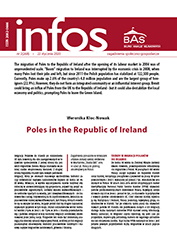
The migration of Poles to the Republic of Ireland after the opening of its labour market in 2004 was of unprecedented scale. "Boom" migration to Ireland was interrupted by the economic crisis in 2008, when many Poles lost their jobs and left, but since 2011 the Polish population has stabilized at 122,500 people. Currently, Poles make up 2.6% of the country's 4.8 million population and are the largest group of foreigners (22.9%). However, they do not form an integrated community or an influential interest group. Brexit could bring an influx of Poles from the UK to the Republic of Ireland - but it could also destabilize the local economy and politics, prompting Poles to leave the Green Island.
More...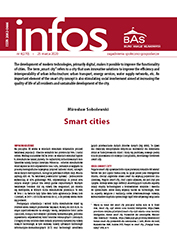
The development of modern technologies, primarily digital, makes it possible to improve the functionality of cities. The term "smart city" refers to a city that uses innovative solutions to improve the efficiency and interoperability of urban infrastructure: urban transport, energy services, water supply networks, etc. An important element of the smart city concept is also stimulating social involvement aimed at increasing the quality of life of all residents and sustainable development of the city.
More...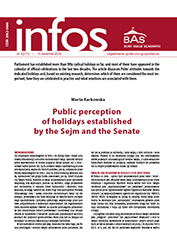
Parliament has established more than fifty cyclical holidays so far, and most of them have appeared in the calendar of official celebrations in the last two decades. The article discusses Poles' attitudes towards the indicated holidays and, based on existing research, determines which of them are considered the most important, how they are celebrated in practice and what emotions are associated with them.
More...
The role of expert knowledge in policy-making processes has come to occupy a prominent position in scholar debates. In addition, expertise is a well-recognized resource, facilitating interest groups’ access to decision-makers. It is expected for evidence-based knowledge to be of high importance especially in the healthcare sector. However, we still know very little about the role of expertise in healthcare policy in CEE. The region itself is not a monolith, as it covers countries at various stages of economic, social, and democratic development. This article aims to overcome this research gap by examining the importance of expertise developed and provided by interest groups operating in the healthcare field as well as the extent to which this expertise translates into their access to policy-making apparatus. By examining different types of expertise (scientific, legal, economic, and impact), the Authors provide a unique approach to the topic, presenting data gathered just before the start of the COVID-19 pandemic, which undoubtedly revealed the importance, but also the crisis of the approach to expert knowledge.
More...
The article starts from a comparative view of the evaluation strategies used among relevant global organizations, that streamline the general approach towards the evaluation practice. The analysis is focused on the way in which the current provisions emphasize different ways of evaluation utilization. Then, the analysis zooms in on to the developments of the EU Cohesion Policy evaluation framework in the period 2007 – 2027 towards a more effective process. The article is developed based on the following two key concepts: evidence-based policy and evaluation use. Both concepts emerged from the research efforts that have been developed since the second half of the nineteenth century. Looking at the subject from this perspective, the evaluation of public programmes and policies becomes an instrument for evidence-based policy. Together with the expansion in using evidence-based policy approach from the last two decades, the evaluation practice should have gained more importance in the policy-making cycle. Nevertheless, most of the available data shows that the results of the evaluation process are used in general to a small extent compared with its potential of generating change at the level of policy, programme, project or in terms of organizational culture. In this respect, the aim of the analysis is to answer two key questions: Is the utilization phase sufficiently explicit within the evaluation frameworks developed by international organizations? and Are there other implicit factors that have to be activated/mobilized in the evaluation process so as to increase the role of the evaluation in the policy cycle? The core rationale of putting the focus of the article on this subject is given by the fact that this practice involves engaging considerable financial, human and time resources and when an evaluation does not produce the expected effects it becomes a waste of resources.
More...
Along with the diversification of types of international migrations and growing selective approach of countries to admitting foreigners, a group of enterprises, corporations, and networks of intermediaries engaged in facilitating transnational mobility has emerged. This brief presents the dynamics and specificity of the broadly understood global market of migration services. The example of Poland shows that the activities of various types of migration actors, often referred to as the migration industry, has a significant impact on the size and nature of migration and who the migrants are.
More...